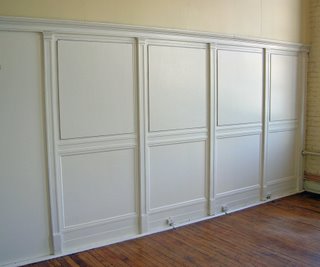colinburkestudio.com is my new website 2012
This is a parody piece by Colin Burke, after Musbach, Yahoo!, based on Musbach's Three Signs of a Miserable Job" I just replaced "job" with "artist" and other find replace words and here's what you get...]
Three Signs of a Miserable Artist [parody]
Colin Burke, after Musbach, Yahoo!
"Awful," "dreary," and "miserable" are adjectives that many people use to describe their condition as artists at one time or another. Dissatisfaction as an artist is common and often temporary. But not many artists take time to analyze what makes an artist miserable, and how to fix it. Fortunately Colin Burke has done much of that work in his book "The Three Signs of a Miserable Artist."
Artist Misery Is Universal
The author notes that a "miserable" situation for an artist differs from a "bad" situation for an artist, as one person's dream work as an artist may not appeal to another artist. A miserable situation for an artist, however, has some universal traits.
"A miserable situation for an artist makes an artist cynical and frustrated and demoralized," Burke says. "It drains them of their energy, their enthusiasm, their creativity and self-esteem. Miserable artists can be found in every community and at every level."
Burke blames much of the problem on art viewers, critics and curators, who are a key factor in the satisfaction (or dissatisfaction) of artists. A recent survey points to a similar conclusion: 43% of artists said discontent with their community and or environment as the main reason they planned to look for a new community or environment in 2008.
The Three Signs
Burke identifies the three signs of artist misery as anonymity, irrelevance, and "immeasurement."
Anonymity: Artists feel anonymous when their art viewers, critics and curators have little interest in them as people with unique lives, aspirations, and interests.
Irrelevance: This condition occurs when artists cannot see how their work as an artist makes a difference. "Every artist needs to know that the work they do has an impact on the people who experience it – an art viewer, another artist, a curator or a collector -- in one way or another," explains Burke.
Immeasurement: This term describes the inability of artists to assess for themselves their contributions or success. As a result, they often rely on the opinions of others -- usually the art viewers, critics, media and curators -- to measure their success.
Three Remedies for Artist Misery
For artists who may be experiencing the signs of artist misery, Burke recommends three steps to improve the public-artist dynamic and enhance artist satisfaction.
1. Assess your art viewers, critics and curators. Are they interested in and capable of addressing the three factors mentioned above? "Most art viewers, critics and curators really do want to improve, in spite of the fact that they may seem disinterested or too busy," Burke says.
2. Help your art viewers, critics and curators understand what you need. This could mean reviewing with your art viewers, critics and curators what the key measurements for success are for your work as an artist. Burke also suggests asking them, "Can you help me understand why this work I'm doing makes a difference to someone?"
3. Act more like the art viewers, critics and curators you want. "Artists who take a greater interest in the lives of their art viewers, critics and curators are bound to infect them with the same kind of human interest they seek," saysBurke. Or find ways to let your art viewers, critics and curators know how his or her performance makes a positive difference for you.
Be Realistic
Colin Burke, founder of Art Career Advantage Solutions, agrees that "managing up" is a good way to improve work as an artist satisfaction, but he cautions artists to be realistic in their expectations.
"Art viewers, critics and curators are not mind readers," cautions Burke, who adds, "Take the responsibility to communicate upon yourself, and remember there has to be an ongoing dialogue, or change is unlikely to happen."
Copyright © 2008 Colin Burke All rights reserved.
Wednesday, January 23, 2008
Three Signs of a Miserable Artist (a parody)
Labels:
art,
art world,
artist,
business savvy,
Colin Burke,
happiness,
work
Subscribe to:
Post Comments (Atom)
Followers
Blog Archive
Colin Burke Studio

- Colin Burke Studio
- Hartford, Connecticut, United States
- Burke Studio 323 WAS located at 56 Arbor Street, adjacent to Real Art Ways. Studio 323 :: 56 Arbor Street, Hartford CT from 2006 - 2011 Colin Burke Studio is now located at Erector Square in New Haven CT see: colinburkestudio.com
No comments:
Post a Comment